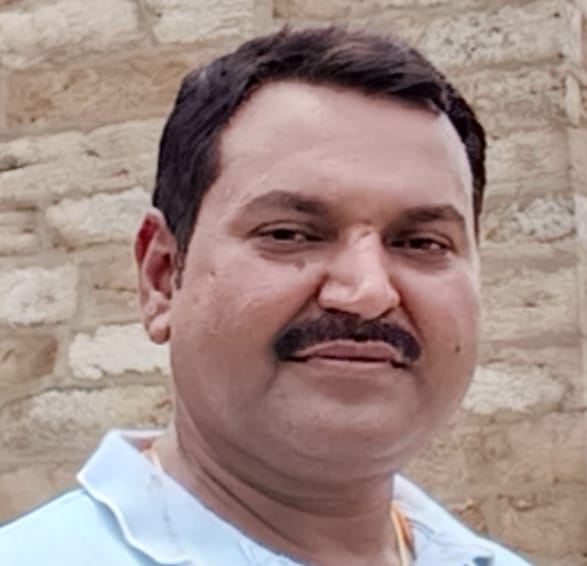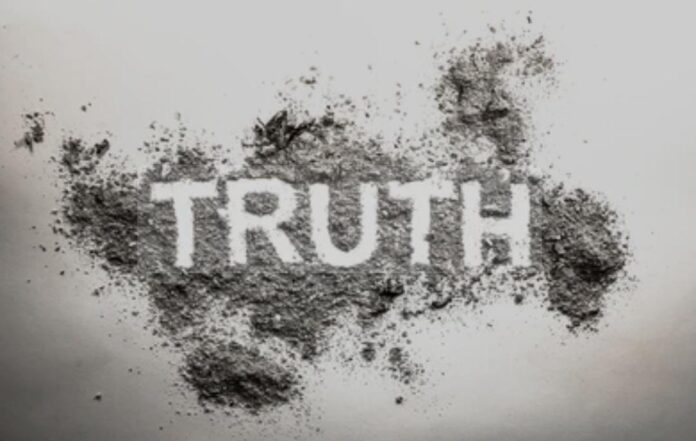
Amit Pandey
The political landscape in Karnataka has been rife with controversies, power struggles, and strategic maneuvers, epitomized by the recent allegations against Chief Minister Siddaramaiah and his wife, Parvathi. As the dust settles on the Karnataka Lokayukta’s clean chit in the Mysuru Urban Development Authority (MUDA) site allotment case, one can’t help but question the underlying motives and implications of this saga. Was the inquiry a genuine pursuit of justice, or merely a politically motivated attempt to defame a formidable opposition leader? How have these allegations and their subsequent dismissal influenced the perception of corruption and governance in the state? And more broadly, what does this episode reveal about the tactics employed by political parties to crush their rivals and consolidate power?
The MUDA site allotment case, which accused Siddaramaiah and his wife of benefiting from irregularities in the allocation of compensatory sites, first emerged during the BJP’s tenure in Karnataka. The timing of the inquiry raised eyebrows, as Siddaramaiah was gaining momentum as a strong contender for the Chief Ministerial position. Was this a coincidence, or a calculated move by the BJP to weaken a political adversary? The Lokayukta’s investigation ultimately found no substantial evidence to support the allegations, but the damage to Siddaramaiah’s reputation had already been done. Is this a case of justice being delayed, or justice being denied?
As we delve deeper into the political motivations behind such inquiries, it becomes evident that this is not an isolated incident. The selective targeting of opposition leaders, while BJP leaders facing similar or more severe allegations often escape stringent scrutiny, raises questions about the integrity of the anti-corruption narrative. Are these inquiries genuinely aimed at rooting out corruption, or are they tools wielded to stifle political dissent and maintain dominance? How do these tactics impact the democratic process, and what lessons can be drawn from this for the future of Indian politics?
The broader implications of this case extend beyond Karnataka. Across India, the weaponization of investigative agencies and legal mechanisms to target political opponents has become a common tactic. How does this affect public trust in democratic institutions and the rule of law? What role do the media and public opinion play in shaping the narrative around such allegations? Can democracy thrive in an environment where power is used to crush dissent and opposition voices are silenced?
In examining the case of Siddaramaiah, we must also consider the actions and inactions of the BJP government. Leaders like Basavaraj Bommai and Madal Virupakshappa have faced serious allegations of corruption, yet have managed to evade significant legal consequences. Is there a double standard at play, where the ruling party shields its own while aggressively pursuing cases against the opposition? How does this selective targeting undermine the credibility of the anti-corruption crusade and erode public confidence in governance?
As we explore these questions, it becomes clear that the case against Siddaramaiah is not just about one leader or one allegation. It is a microcosm of the larger political dynamics at play in India, where power, influence, and strategic maneuvers often overshadow the principles of justice, fairness, and accountability. In this complex and often contentious landscape, the need for impartial and transparent investigations has never been more critical. Only by addressing these fundamental issues can we hope to restore faith in our democratic institutions and ensure a more equitable and just political system for all.
The MUDA Site Allotment Case:
The allegations against Karnataka Chief Minister Siddaramaiah and his wife, Parvathi Siddaramaiah, centered on the **50:50 site allocation scheme** by the Mysuru Urban Development Authority (MUDA). This scheme allows land losers to receive 50% of developed land in exchange for undeveloped land acquired for residential layouts. The controversy arose when Parvathi Siddaramaiah received compensatory plots in an upscale area of Mysuru, raising suspicions of impropriety.
Despite a two-year-long investigation initiated under the BJP government, the Karnataka Lokayukta found no material evidence against the couple. The Lokayukta police submitted a final report to the High Court, stating that the allegations could not be substantiated due to lack of evidence. However, the complainant, Snehamayi Krishna, alleged bias in the investigation and raised concerns about political motives behind the case.
Political analysts have commented on how such allegations, even when baseless, can be strategically used to tarnish a leader’s reputation ahead of elections. According to political expert Dr. Alok Ranjan, “The timing and persistence of these allegations suggest a political agenda aimed at discrediting Siddaramaiah and his party, especially with elections on the horizon.” He further added, “The amplification of these allegations by BJP leaders in the media indicates a calculated effort to sway public opinion.”
The case highlights the broader issue of political vendetta and the use of legal mechanisms to target political opponents. Despite the clean chit from the Lokayukta, the controversy continues to simmer, with further investigations into MUDA’s land allotment practices from 2016 to 2024. The Enforcement Directorate (ED) is also investigating the matter, adding another layer of complexity to the case.
While the allegations against Siddaramaiah and his wife have been proven baseless, the political implications and the ongoing scrutiny underscore the challenges faced by political leaders in navigating accusations and maintaining their reputation.
Misuse of Power and Impact on Democratic Institutions
The BJP has consistently utilized investigative agencies like the Lokayukta, Enforcement Directorate (ED), and the Central Bureau of Investigation (CBI) to target opposition leaders, thereby weakening their political rivals. Prominent Congress leaders, including Rahul Gandhi and P. Chidambaram, have faced inquiries that conveniently coincided with major election campaigns, raising questions about the timing and motivations behind these actions. Political analyst Prof. Jayaprakash Narayan argues, “The pattern of investigations shows a clear bias. Allegations against BJP leaders are ignored or diluted, while opposition figures face relentless scrutiny.”
The role of media in shaping public perception cannot be understated. The BJP has effectively harnessed media trials to reinforce corruption allegations against opposition figures. In Siddaramaiah’s case, despite the absence of concrete evidence, BJP-aligned media outlets repeatedly portrayed him as embroiled in corruption, damaging his credibility. Senior journalist Ravish Kumar explains, “Media plays a crucial role in shaping narratives. The BJP’s control over influential media houses allows them to amplify allegations against opposition leaders while downplaying similar charges against their own.” This media control ensures that corruption allegations against BJP leaders, such as those against former Karnataka Chief Minister Basavaraj Bommai, receive minimal coverage.
Double standards in media coverage further exacerbate the issue. While Siddaramaiah’s case was extensively reported, similar or even more serious allegations against BJP leaders failed to receive the same level of attention. For instance, the case of BJP MLA Madal Virupakshappa, whose son was caught accepting bribes with over ₹6 crore in cash recovered from his residence, was barely highlighted in mainstream news. In contrast, unproven allegations against opposition leaders often dominate headlines for weeks, shaping public opinion against them.
This selective targeting and media manipulation raise critical questions about the integrity of the democratic process in India. The apparent bias in investigations and media coverage undermines the credibility of anti-corruption narratives and erodes public trust in governance. As a result, the political landscape becomes skewed, with power dynamics heavily influenced by strategic allegations and media portrayal, rather than genuine public discourse and policy debates.
The misuse of investigative agencies erodes public trust in democratic institutions. Selective targeting of opposition figures creates an uneven political playing field where ruling party leaders remain untouchable while opposition members are subjected to continuous legal harassment.
Senior advocate Prashant Bhushan warns, “The politicization of investigative agencies is one of the biggest threats to democracy. When agencies act as tools of the ruling party, justice is compromised.” This trend discourages dissent and weakens the opposition, ultimately damaging democratic governance.
Although courts have occasionally intervened to dismiss politically motivated cases, the process itself is a form of punishment. The prolonged legal battles force opposition leaders to divert time and resources from governance and election campaigns. Legal expert Dr. Aruna Roy states, “While courts may ultimately dismiss these cases, the mere act of filing them achieves the desired political outcome—delaying and distracting opposition leaders.”
The Larger Political Strategy
The BJP’s strategy of weaponizing corruption allegations against opposition leaders follows a clear pattern. This was evident in the cases against Hemant Soren in Jharkhand, Arvind Kejriwal’s AAP government in Delhi, and opposition leaders in Maharashtra. The goal is not just to weaken individual leaders but to create a broader narrative that opposition parties are inherently corrupt while portraying the BJP as clean.
Former Election Commissioner S.Y. Quraishi notes, “The use of investigative agencies for political ends disrupts fair electoral competition. Democracy thrives on a level playing field, which is being systematically eroded.”
The BJP’s aggressive use of legal cases against opposition leaders has had mixed reactions. While its core supporters believe in the anti-corruption narrative, independent voters increasingly view these actions as politically motivated. Surveys suggest that such tactics may work in the short term but can backfire if perceived as excessive or unfair.
The Siddaramaiah case exemplifies how corruption allegations can be used as political weapons. While the Lokayukta’s clean chit confirms that the charges were baseless, the damage to his reputation had already been done. The selective targeting of opposition leaders, the role of media in amplifying these narratives, and the misuse of investigative agencies reflect a dangerous trend that threatens India’s democratic integrity.
As political commentators warn, the continued weaponization of legal institutions for political gain will have long-term consequences. Ensuring a truly independent judiciary and investigative mechanism is crucial for maintaining democracy’s foundational principles. If these practices persist, India risks becoming a system where opposition is systematically silenced under the pretext of legal scrutiny.
( Author is Managing Editor of The Emerging World)


